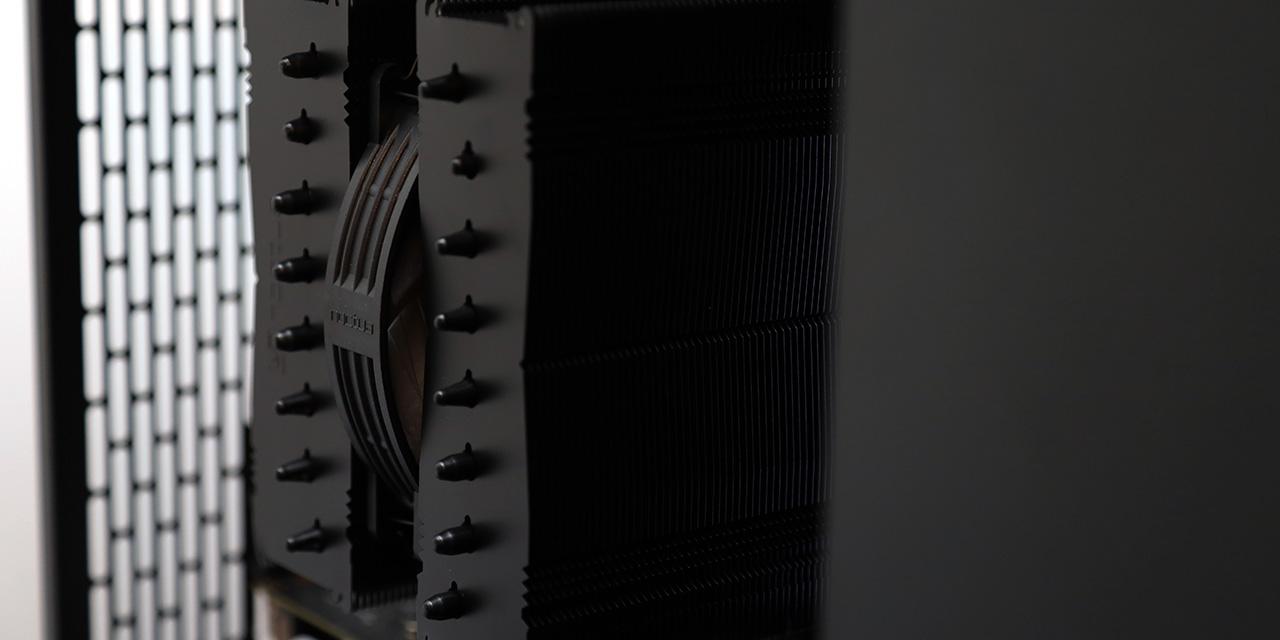Page 3 - Test Results

Our test configuration is as follows:
CPU: Intel Core i5-4670K (Stock settings)
Motherboard: Gigabyte Z87X-D3H
RAM: Kingston HyperX Fury DDR3 2x8GB
Graphics: MSI GeForce GTX 1070 Ti Titanium 8G
Chassis: Cooler Master MasterCase MC500M
Power: Seasonic FOCUS Plus 850 Gold 850W
Storage: OCZ ARC 100 240GB, Western Digital Blue EZEX 1TB
Operating System: Microsoft Windows 10 Professional x64
Compared hardware:
- Cooler Master MasterLiquid ML240R RGB
- Cooler Master MasterLiquid ML120R RGB
- CRYORIG H7 Quad Lumi
- Intel Stock Cooler
- Noctua NH-C14S (Dual Fan)


All tests were run in our custom built computer to best reflect real life performance. The computer remained in the same place and room for all tests with an ambient temperature of approximately 20c. The thermal paste applied to each cooler was stock respective to their manufacturer's to rate its performance, with sufficient time between testing for the paste to settle. The fans on all heatsinks were connected to the same motherboard 4-pin connector. The test computer was turned on and idling for at least one hour for the idling tests. High CPU load results were obtained using the Prime95 in place large FFTs test with four worker threads for a minimum of fifteen minutes, and recorded when the temperature was deemed stable. The liquid coolers tested were mounted to the top of the case with both fans attached in push configuration. The temperature results for each cooler was measured with CoreTemp, which reports the CPU's integrated digital thermal sensor for maximum accuracy. Each temperature result was calculated by taking the maximum value of the cores inside the CPU.
After installation and letting our computer sit idle, we recorded temperatures of approximately 27 degrees Celsius from the Cooler Master MasterLiquid ML240R RGB. While this is pretty average, this is still not the coolest we have seen. Comparatively speaking, this was similar to the CRYORIG H7 Quad Lumi, while being two degrees warmer than the Noctua NH-C14S. Even so, these numbers were under zero-load conditions, so we went to our load tests to see what the ML240R was actually capable of. Just to note, these idle numbers were also checked after our load test to ensure reliable numbers.
Powering Prime95 up and running the tests, the Cooler Master MasterLiquid ML240R RGB immediately came alive with all fans spinning to keep the unit cool. After approximately half an hour to let the temperature stabilize, we finished with a maximum temperature of approximately 65 degrees Celsius. Comparing with the other all in one cooler, the ML120R, this number was quite similar all things considered, with a difference in temperature of only two degrees. Once again, this is not a whole lot better than the two air coolers I have compared it with, the NH-C14S or the H7 Quad Lumi. You can see all of the aftermarket coolers were within four degrees of each other. At these full load conditions, this was still a pretty good result. In addition, you can see how poor the Intel stock cooler performs compared to any of these coolers.
As with all the cooling products we review, we not only value the cooling capabilities of the item, but also the audio performance. While you might try using over-the-ear headphones to block out everything, sound is pretty important to the enjoyment of using your computer. Using a scale between 0 and 10, where 0 is silent and 10 is loud, I would rate the Cooler Master MasterLiquid ML240R RGB at 4.0/10 at idle, and while under load, the sound comes in at 6.0/10. The noise comes from both the fans and the pump, as you can really hear them work at full power. Even under idle conditions, a low hum can be heard from the water block pump. The cooler was definitely not made with silence in mind, but I think there is still room for improvement. Obviously, you can change the fan curves with the motherboard software to reduce the emitted noise, but this will adversely affect cooling performance.
One thing I will highlight is the RGB coloring. Both the water block and the two fans included illuminated brightly, and they were really nice both in effects and vibrancy. Ignoring the issues we had with the installation and button usage, I will say the lights were quite pretty for sure and made for a good look. Obviously, if you have a motherboard with ARGB pins out, you can probably have more control through the motherboard specific software, but your mileage will vary.
Page Index
1. Introduction, Packaging, Specifications
2. Physical Look - Hardware; Installation
3. Test Results
4. Conclusion





